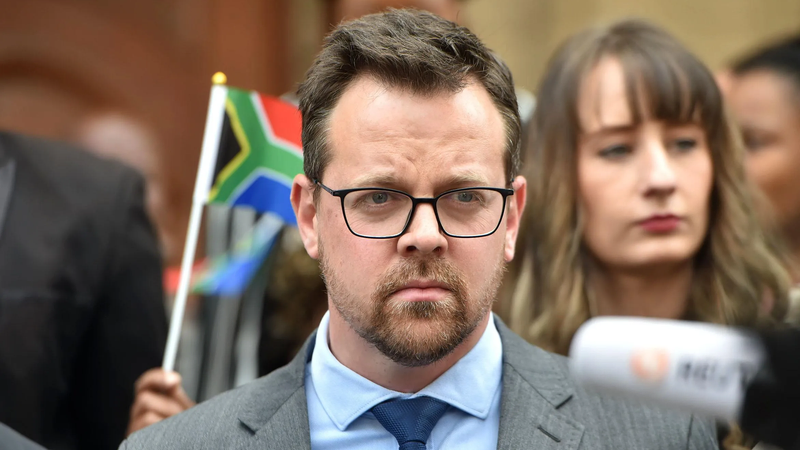In a heated interview with far-right media personality Tucker Carlson, Ernst Roets, the executive director of the Afrikaner Foundation, reignited controversy over race and identity politics in South Africa. Roets, a staunch advocate for Afrikaner self-determination, leveled claims that South African universities are teaching harmful and divisive narratives about race, particularly through a concept he referred to as the “Azania Critical Theory.”
Roets’ comments were sparked by recent remarks made by Nhlamulo ‘Nota’ Baloyi, who controversially stated that white people are “inferior Neanderthals.” Baloyi’s comments have since come under scrutiny, with the South African Human Rights Commission (SAHRC) opening an investigation into his statements. In the interview, Roets argued that such views, including the idea that white people are inherently inferior, are actively being propagated in South African academic institutions.
“There was a video that went viral on social media of this guy talking about how white people are subhuman. This is taught at universities in SA,” Roets asserted. He went on to explain the concept of “Azania Critical Theory,” a term drawn from Pan-African ideology, claiming that it is influenced by American intellectuals but given an African spin.
According to Roets, proponents of this theory argue that white people lack the African concept of “Ubuntu,” which translates to brotherliness or humanity. Roets suggested that this could lead to the dangerous and illogical conclusion that if white people are incapable of Ubuntu, then their deaths would not constitute murder. “It essentially boils down to a theory that justifies the targeting and extermination of the white minority,” Roets claimed.
However, Roets’ assertions were quickly challenged by Dr. Tristán Kapp, a human rights activist and academic. Dr. Kapp explained that the Azania Critical Theory does not advocate for the inferiority of white people. Rather, it critiques the legacy of colonialism and apartheid in South Africa and calls for a radical reimagining of the country’s identity, prioritizing decolonization and the affirmation of black consciousness. Kapp clarified that the theory specifically challenges the post-apartheid constitutional order for failing to address deep-rooted racial injustices, not promoting racial violence or discrimination.
Roets also suggested that influential American intellectuals like Ta-Nehisi Coates had shaped the framework of Azania Critical Theory, a claim that has been a point of contention, especially among critics like Carlson. Roets continued to paint a grim picture, arguing that this theory presents a justification for violence against the white minority in South Africa.
As tensions mount, the Directorate for Priority Crime Investigation (Hawks) confirmed that investigations into potential high treason have been opened due to concerns about misinformation being spread in the United States about South Africa’s racial dynamics.
The debate surrounding Roets’ remarks raises important questions about academic freedom, the role of ideology in shaping racial perceptions, and the volatile nature of racial discourse in post-apartheid South Africa. As the country continues to grapple with its divisive history, the conversation about race, power, and justice remains as complex and contentious as ever.
